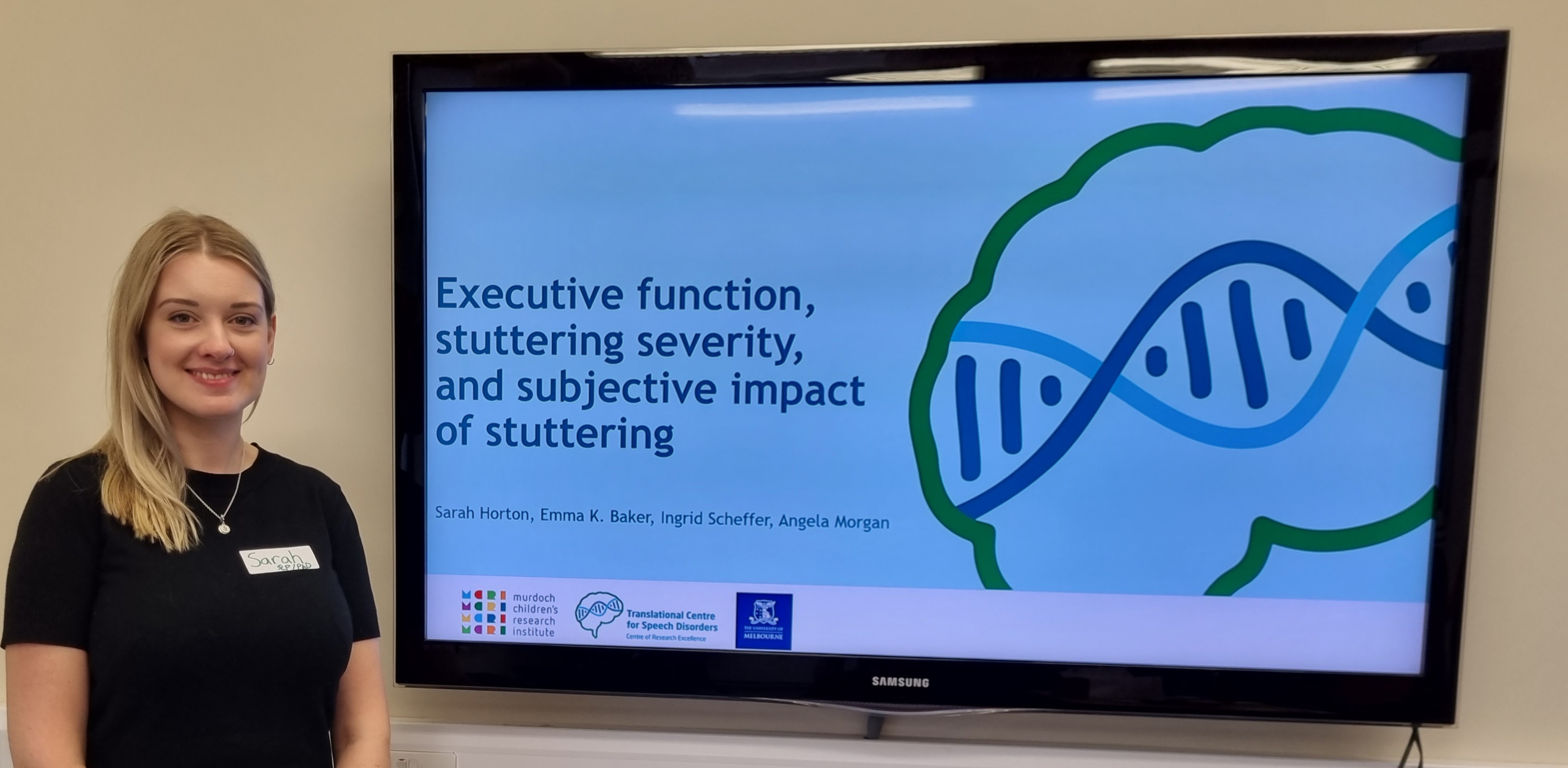PhD candidate Sarah Horton recognised for stuttering research

Sarah Horton, a third-year PhD student in Speech Pathology at the University of Melbourne and practising speech pathologist was recently awarded the Travers Reid Award associated with the 13th Oxford Dysfluency Conference.
The Travers Reid Award recognises the contribution of research to the lives of children and young people who stammer. It honours Life President of Action for Stammering Children Travers Reid, who was passionate about ensuring children and their families could access specialist support for stammering, and was an advocate for evidence-based practice.
Sarah received the award for her presentation “Executive function, stuttering severity, and subjective impact of stuttering”.
Her research forms part of the international Genetics of Stuttering Study, and aims to investigate subgroups of people who stutter, based on features such as speech characteristics, genetics, and other health and medical conditions.
Sarah brings personal experience of stuttering to her rigorous research, which she hopes will lead to a greater understanding of the different experiences of people who stutter.
“As a person who stutters, this research is very close to my heart. I hope that my research in identifying subgroups of people who stutter with similar features will help us better understand differences in stuttering – such as why some people recover naturally and some don’t, or why some people respond to treatments and others don’t. Understanding these differences will help us to prioritise services to those who need them, and tailor treatment to their individual needs,” she said.
Sarah also received the award for Best Overall Presentation at the Melbourne School of Health Sciences Graduate Research Student Colloquium for the same study.
The research was conducted in collaboration with the Murdoch Children’s Research Institute and was co-authored by Emma K Baker (La Trobe University), Ingrid Scheffer (University of Melbourne) and Professor Angela Morgan (University of Melbourne).